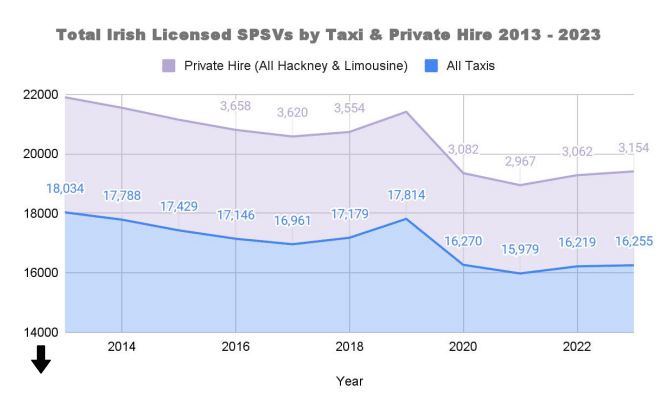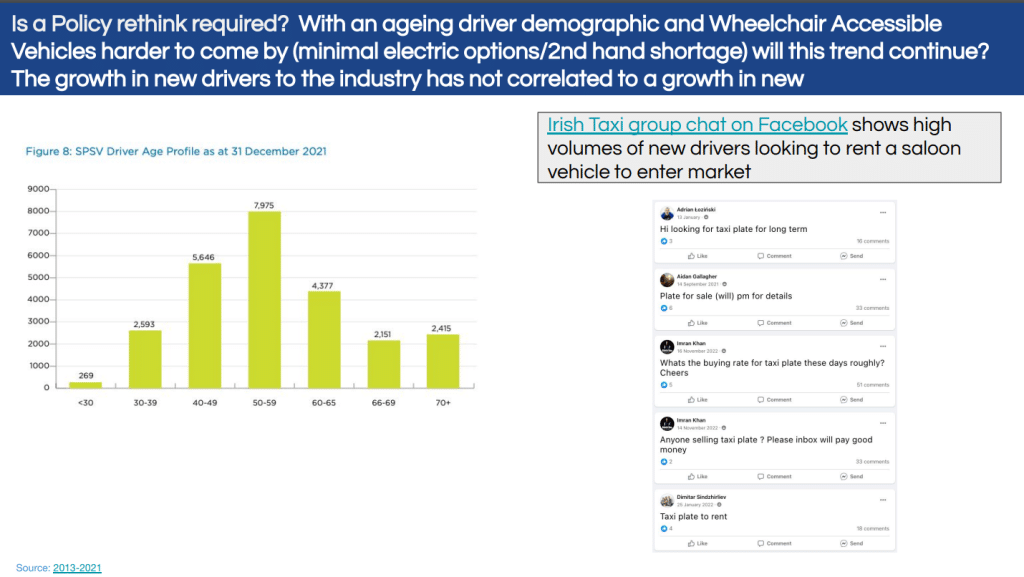New documents show how Uber is using the transportation struggles faced by disabled people to its own advantage
By Conor O’Carroll
Uber is pushing to enter the Irish market and is using the recent changes to taxi licence rules and fewer new taxi drivers to present themselves as a suitable solution.
Documents released to Village Magazine under Freedom of Information (FOI) legislation show how representatives from Uber, including General Manager for Uber Ireland, Kieran Harte, presented the company as “a solution to the taxi crisis” in a meeting in late June of this year with John McDonald, a policy advisor at the Department of Transport.
In June last year, then-Tánaiste, Leo Varadkar TD, suggested that Uber and Lyft could be allowed access to the Irish market to help with taxi shortages
No meeting minutes were provided to the FOI request, leaving no record of what was specifically discussed, but presentation slides provided by Uber were released.
They show Uber’s attempt to highlight the decline in taxi supply over the previous decade. While there has been a consistent decline since 2013, the numbers exiting the taxi market are far from dramatic.
The largest drop occurred around the time of the pandemic when the need for taxis was substantially reduced. Since then, numbers have begun to recover, with an upward trajectory evident over the last number of years.

Uber attributes this “decline” to the requirement for all newly licensed taxis to be wheelchair accessible. They show that the percentage of wheelchair-accessible taxis of total licenses has reached 20% as of May 2023, equating to just over 3,400 wheelchair-accessible vehicles.
The presentation continues, however, by suggesting that the rise in accessible taxis will not continue due to the limited availability of suitable vehicles available for drivers to purchase.
They also point to the ageing demographic of drivers, with the vast majority aged over 50.

This claim is rebutted somewhat by the announcement in April by the National Transport Authority (NTA) that this year’s Wheelchair Accessible Vehicle grant scheme has increased funding to €3 million following “a high level of interest”.
It is unclear what solution Uber is offering. Ride-sharing apps, such as Uber, rely on their drivers providing their own vehicles and so Uber drivers will face the exact same obstacles in sourcing and financing their Uber cars as new taxi drivers do. Thus, the only way that Uber could possibly add capacity to the public hire/taxi market is by allowing its drivers to use vehicles that are not wheelchair accessible.
Nonetheless, Uber persists, arguing that the current policy will lead to less reliability for wheelchair users as they compete with more people for fewer taxis is supported only by anecdotal evidence, using a selection of complaints sourced from social media.
Uber’s solution to this issue is predicable; address the supply imbalance by opening up the Irish market to private ride-share apps. An email sent to McDonald after the meeting suggests that this proposal has received some attention, with McDonald supposedly engaging with officials at the Department of Transport and NTA.

The result of this engagement is, as yet, unknown, however, it is clear that Uber has not yet given up on its relentless efforts to force its way into the Irish taxi market following its ban in 2017.
In June last year, then-Tánaiste, Leo Varadkar TD, suggested that Uber and Lyft could be allowed access to the Irish market to help with taxi shortages. This undoubtedly provided some hope to Uber that their request would be listened to by those in the halls of Leinster House.
The trove of leaked company records known as the Uber Files released a month prior to this announcement by Varadkar, highlighted the intense lobbying campaign undertaken by Uber in the lead-up to the 2016 General Election.
They show how the company believed they had influenced a Fine Gael manifesto commitment from then-leader Enda Kenny, to embrace a “sharing economy”, placing Ireland at the forefront of digital innovation.
This Fine Gael commitment was short-lived, however, as officials at the NTA ruled that Uber’s business model was not suitable for Ireland’s economy.
With all the issues arising from the gig economy in Ireland over the past number of years, as reported in this magazine, the NTA’s decision to refuse Uber an exemption from the regulated taxi industry, allowing it to operate as it sees fit, has stood the test of time.
Even as Uber continues to lobby for a position in the taxi market, Village believes a better solution to the taxi “crisis” would be to invest in accessible, reliable and green public transport for all, reducing the strain on the industry and leaving accessible options available for those that require them most.